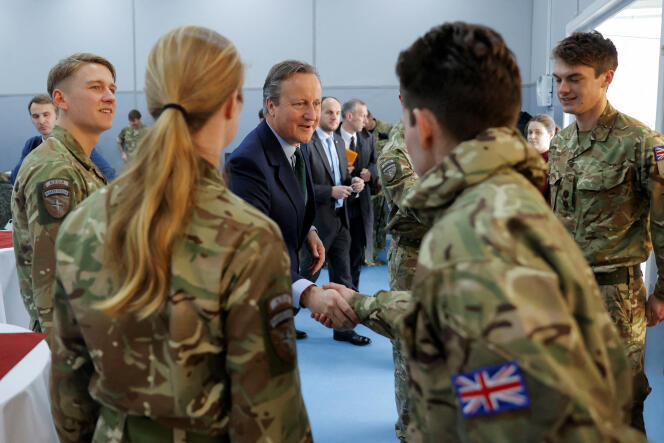


Should the British be preparing for war? This troubling question was posed bluntly by General Patrick Sanders, the army's chief of the general staff, a few days ago. During a speech in London on January 24, he argued that the UK should form "a citizen army" in the event of open conflict between NATO and Russia. This statement by a general near the end of his career – he will be retiring next summer – has sparked an unprecedented debate in a country that ended conscription in 1960.
Sanders argued that the UK should follow the Swedish example and take "preparatory steps to enable placing our societies on a war footing," adding that such action is "not merely desirable, but essential". Sweden recently reintroduced a form of military service. Downing Street has denied that it is working on such a scenario, calling it "hypothetical". The UK Ministry of Defence has also distanced itself from the general's comments, insisting on the British army's "proud tradition of being a voluntary force".
Despite these denials, General Sanders' comments have been echoed by Richard Shirreff, NATO's former deputy commander-in-chief, and a Brit, who said the time had come to "think the unthinkable" even if "Britain's armed forces have traditionally and culturally relied on long service volunteer highly professional soldiers with huge experience, and that is really the way we would all want it to go on".
Retired Colonel Tim Collins has also agreed that a return to conscription "may be the only alternative" to what he calls a failed system of recruitment, while Penny Mordaunt, the current leader of the House of Commons and a former defense minister, said on January 30 that she supported the creation of a "civil defence force". Former prime minister Boris Johnson has even said he would be ready to sign up. "Would I sign up to fight for king and country? Yes, Sah!" he claimed in his weekly column for the Daily Mail.
Just a few weeks before chancellor Jeremy Hunt is due to present his budget (and a few months before the general election), these statements are possibly not without ulterior motives, given that the UK currently spends 2.1% of its gross domestic product (GDP) on defense, and that Grant Shapps, the secretary of state for defense, has said he wants to increase this to 2.5% of GDP.
"Sir Patrick Sanders points out a contradiction. If, as the defense secretary acknowledges, the world has become more dangerous and Western democracies are facing aggressive regimes, then why not react without delay? Because our armed forces have been seriously weakened and are not in a position to deal with these new threats," said Andrew Dorman, a security specialist at King's College London.
You have 55% of this article left to read. The rest is for subscribers only.
